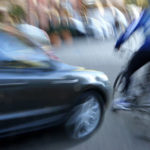Obtaining Compensation in Alcohol-Related Crashes

Ever since the 1990s, law enforcement, judges, and lawmakers have tried to reduce the number of alcohol-related crashes. This crackdown includes things like roadside checkpoints, Ignition Interlock Devices (portable Breathalyzers attached to a vehicle’s ignition), and tough new laws, like the refusal-to-submit law.
Yet despite all these efforts, alcohol still causes about a third of the fatal car crashes in Florida. That’s roughly the same proportion as it was thirty-five years ago, before the crackdown began.
As is so often the case, if other efforts fail, Port St. Lucie personal injury attorneys take up the slack. We pursue legal claims not just to obtain compensation for victims. We also want to make sure that drunk drivers, and the bars that sell them liquor, understand that such conduct is unacceptable.
Direct Evidence in Florida Drunk Driving Cases
In most drunk driving cases, the driver submits to a chemical test (usually a breath test) and fails it. If that happens, and the Breathalyzer or other gadget was working properly and there are no other extenuating circumstances, the driver is usually guilty of DUI as a matter of law.
The same thing applies in civil court. The tortfeasor (negligent driver) is automatically responsible for the victim/plaintiff’s damages if:
- The tortfeasor violated a penal safety law, like the DUI law, and
- That violation substantially caused the crash.
In a negligence case, the civil jury decides all the facts. That includes guilt or innocence of DUI. So, even if the tortfeasor beat the case on a technicality, or has not even been formally charged yet, the jury can still apply the negligence per se doctrine.
Circumstantial Evidence in Alcohol Impairment Cases
Not all of these crashes include DUI charges. Sometimes, the tortfeasor is unable to go through the arrest process, perhaps due to serious injury. Other times, the tortfeasor has been drinking, but s/he was not legally intoxicated. In these situations, victim/plaintiffs may use circumstantial evidence to establish liability. Such evidence includes:
- Erratic driving,
- Bloodshot eyes,
- Odor of alcohol, and
- Unsteady balance.
Although this evidence really only establishes consumption, such a showing is usually sufficient to establish impairment as well. Scientifically, impairment begins with the first drink. So, if the tortfeasor had anything to drink, the tortfeasor should not have been driving.
The very low burden of proof helps. In civil court, victim/plaintiffs only need to establish impairment and other points by a preponderance of the evidence (more likely than not).
Third Party Liability
As mentioned, obtaining damages against the tortfeasor only solves part of the problem. It’s also important to target the bar, grocery store, restaurant, or other commercial establishment which provided the alcohol. Such claims are the only way that these companies will change the way they do business.
Additionally, alcohol-related crashes often involve catastrophic injuries. Sometimes, the tortfeasor does not have enough insurance coverage to provide fair compensation. So, the victim/plaintiff needs an additional source of recovery.
Therefore, Florida still has an extremely broad dram shop law. This law holds commercial providers vicariously liable for damages if they sell alcohol to:
- A minor, or
- A person who was habitually addicted to alcohol.
To establish habitual addiction, the victim/plaintiff can use circumstantial evidence like credit card transactions, statements the tortfeasor made to employees, and evidence of heavy alcohol consumption.
Contact a Tenacious Lawyer
Alcohol-related car crash victims are entitled to substantial compensation, and they have several legal options. For a free consultation with an experienced Port St. Lucie personal injury attorney, contact Eighmie Law Firm, P.A. We do not charge upfront legal fees in negligence cases.
Resource:
cdc.gov/motorvehiclesafety/impaired_driving/impaired-drv_factsheet.html


